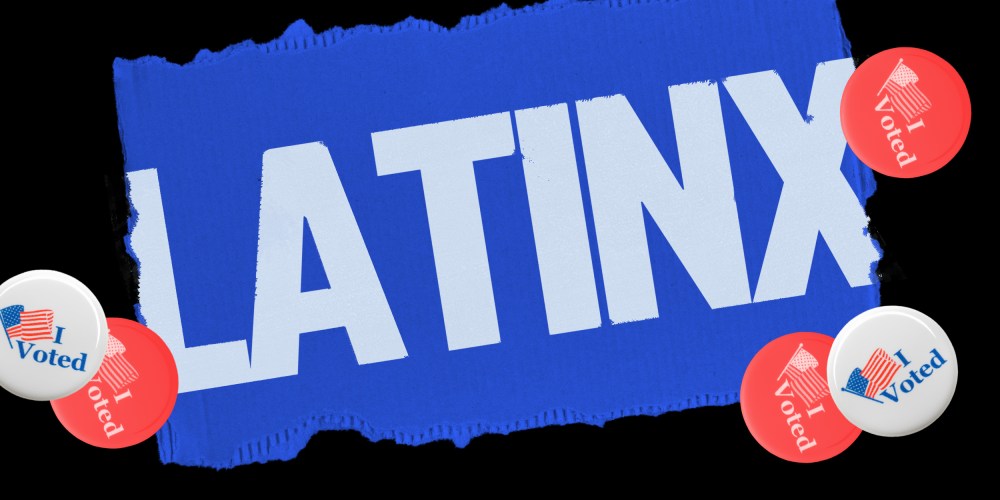In recent years, Democrats and progressive activists have increasingly embraced the term “Latinx,” a gender-neutral alternative to the term “Latino,” referring to people of Latin American heritage. But a new poll highlighted in Politico suggests the term is deeply unpopular among Latinos — and even a source of frustration substantial enough to make some Latino voters skeptical of those who use the term.
The poll raises important questions about what it means for Democrats — including the president — to address a community using a term that just a small percentage of that community uses. It’s an odd situation: Typically, Democrats catch up with progressive trends after they’ve spread enough to seem safe or beneficial to join; this seems to be an instance of the party jumping ahead of a trend. Now, Democrats and activists within the party could face a dilemma over which kind of inclusiveness in language best serves progressive goals.
Here’s Politico’s summary of the numbers from the recent national poll of 800 Latino voters:
Only 2 percent of those polled refer to themselves as Latinx, while 68 percent call themselves “Hispanic” and 21 percent favored “Latino” or “Latina” to describe their ethnic background, according to the survey from Bendixen & Amandi International, a top Democratic firm specializing in Latino outreach. More problematic for Democrats: 40 percent said Latinx bothers or offends them to some degree and 30 percent said they would be less likely to support a politician or organization that uses the term.
The statistics reflect the fact that the term Latinx, which started gaining traction in queer Latino activist circles and in academia in the 2010s, hasn’t been widely adopted among people with Latin American heritage in the U.S.
But the most eye-catching data points are concerning the substantial percentages of Latino voters — among Democrats, Republicans and independents — who said the term bothered them and could dampen their support for a group that uses the term. In other words, the poll not only raises the question of whether it’s ineffective to use the term, but if using it could alienate voters and repel some of the citizens it’s intended to draw in.
It’s a meaningful opportunity to discuss the mechanics of building a more inclusive party and nation.
There are some significant caveats to consider with this poll, which was conducted by a Democratic-aligned firm. The survey’s results aren’t weighted, which means its sample hasn’t been adjusted to ensure it aligns with the demographics of the national population. (Unweighted poll results tend to overrepresent, for example, older respondents and more educated people.) And the questions asking respondents if the use of Latinx bothers them don’t offer an alternative option — e.g., “or does it not bother you” — meaning they could subtly push people toward saying they are bothered.
That being said, it doesn’t appear to be a wild outlier; other polls haven’t shown Latinx to be a widely used term. Pew Research Center found that 3 percent of adult Latinos used the term Latinx. And it’s relevant for this analysis to point out that a recent Ipsos poll of American adults — not just Latinos — found that the term Latinx had roughly triple the net unfavorability that Hispanic and Latino did among Democrats.
These kinds of polls are fodder for some Democratic strategists and pundits to speculate that Democrats’ increasing use of Latinx explains recent performance issues, such as the 8 percentage point increase in Latino support for former President Donald Trump between 2016 and 2020 and Democrats losing some congressional races in which Latino voters play a decisive role.
In reality, that sort of speculation shouldn’t be taken too seriously. “Latino” vs. “Latinx” was not a major issue of debate in the run-up to 2020, so there’s no evidence suggesting it was a salient issue for Latino or Democratic voters. Experts have pointed out that issues like Latino voters’ views on the economy during Covid-19 and Trump’s de-escalation of anti-immigration hysteria — amid a surge of new, less ideologically committed Latino voters — were likely driving factors in the shift toward Republicans.
Nonetheless, should more polls confirm Bendixen’s finding, it should prompt some reflection on the path forward as Democrats reflect on struggles with outreach to Latino voters. Hugely influential Democrats including Sen. Elizabeth Warren and Rep. Alexandria Ocasio-Cortez use Latinx. Joe Biden, both as a presidential candidate and as president, has used the term (and Republicans have tried to mock him for it). Who is the real constituency to whom these politicians are speaking?













